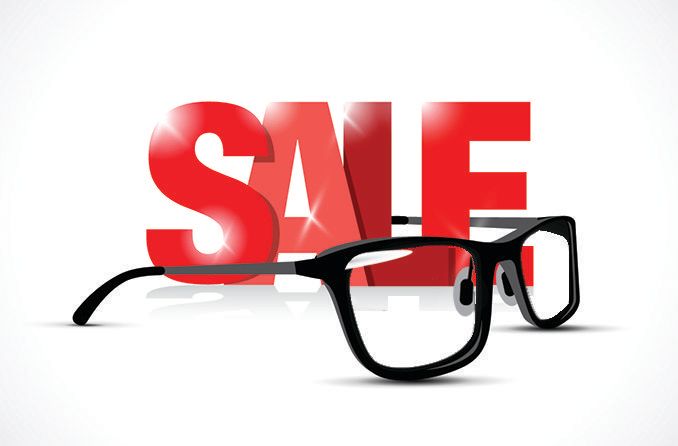Are cheap eyeglasses a good idea?

Are those fashion-forward, far-from-budget-busting specs you bought online good for your eyes?
Unfortunately, the answer is not cut and dried. It really depends on your prescription, your expectations and how you use your glasses, says Dr. Justin Bazan, O.D., an eyewear industry consultant and owner of Park Slope Eyewear in Brooklyn, New York.
If you have a complicated prescription, for example, you might not want to buy them from an online eyewear retailer.
Why not?
“The more complicated the prescription, the more important it is to work with an eye care professional, not only for proper frame selection but also for proper measurements, adjustments of the frame and verification that it was made correctly,” Dr. Bazan says.
Let's look at when buying glasses online makes sense (and saves you lots of cents) and when it's best to get your specs closer to home from your trusted eye doctor or vision center.
Good candidates for inexpensive glasses
Buying cheap(er) glasses online can be a great option for many people.
Ideal candidates include people who need to have their prescription updated frequently, such as children in a myopia management program, says Dr. Bazan. People who are prone to breaking their glasses or those who just need a basic pair for infrequent use are also contenders.
More affordable online specs also make great backup glasses (it’s always wise to have a spare pair, just in case), and they work well for those who want to make a fashion statement with their eyewear but aren’t up to shelling out hundreds of dollars every time a new style strikes their fancy.
“The cost-conscious consumer who is into (owning) multiple pairs of glasses could certainly save a bundle,” Dr. Bazan says.
Verify your prescription before shopping online
The tricky part is making sure the eyewear you receive is the right prescription, says Michael Repka, M.D., spokesperson for the American Academy of Ophthalmology and professor of ophthalmology at Johns Hopkins University.
Technically the only way to do this is with a lensometer (a device that eye care professionals use to measure the various components of a lens to make sure it matches a prescription), and some experts say it is an absolute must to have the glasses checked with one prior to wearing them.
“Take (the glasses) to the doctor who wrote the prescription or to a brick-and-mortar optical shop, both for verifying that the prescription is correct and for adjusting the frame so that it fits properly,” says Dr. Karl Citek, O.D., Ph.D, a professor at Pacific University College of Optometry in Forest Grove, Oregon.
Citek is the author of a 2011 study that found that more than 44% of lenses purchased online “had either an optical or physical problem.”
Aside from that, Repka says simply paying attention to how glasses look and feel can go a long way toward making sure they are up to snuff.
“If it doesn’t feel right, you probably should not wear them,” he explains, adding that this applies to any eyewear, not just the inexpensive variety.
And suppose there is an error? Many online eyewear retailers stand behind their products.
“The majority of reputable online eyewear providers are lowering the barrier of risk by (offering) free returns or 100% satisfaction guarantee,” he explains.
Ask your eye care professional for advice
If you do have issues with glasses you bought online, eye care professionals often will check the lenses to make sure the prescription was filled accurately.
"Many eyewear providers are now understanding that the consumer is purchasing eyewear online, and they are allowing their patients to utilize their in-house optician to validate the prescription, make sure the glasses fit correctly and adjust the glasses,” Bazan says. His clinic, for example, charges a $50 fee for this service.
Repka says that overall, he doesn’t have any reservations about recommending online glasses to patients, as long as they understand that they might not be getting state-of-art optical design or top-quality materials with their purchase.
It is also important to acknowledge that while a frame itself might be cheap, lenses and the associated special features are not always a bargain. A $6 frame, for example, can quickly become a $300+ pair of glasses once you add things like transition lenses, UV protection and blue light filtering.
In other words, you’ll need to do the math to determine whether the glasses you want are actually a good deal.
TIME FOR NEW SPECS? Shop for glasses at an optical store near your on an online eyewear retailer. an independent eye care provider or optometrist near you or shop online.
Page published on Monday, April 13, 2020






